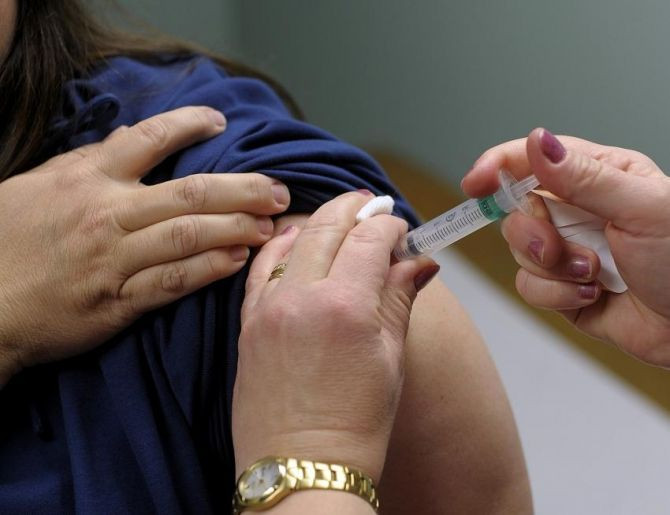Flu Shot May Protect People From Heart Attack, Stroke

The flu shot not only protects people from influenza but can also reduce risk of dying from other underlying health complications like strokes and heart attacks.
"The shot doesn't just protect you against flu, it protects you from heart attacks," said Dr. Jacob Udell, a cardiologist at Women's College Hospital and the University of Toronto, reports HealthDay.
Researchers looked at clinical trials done on vaccines since the 1960s. The studies involved more than 3,200 participants. Half of the participants received a flu shot while the other half received a placebo.
"For those who had the flu shot, there was a pretty strong risk reduction," says Dr. Udell.
Compared to placebos, vaccines reduced the risk of a cardiac event (heart attack, stroke, or cardiac death) by almost 50 percent. The flu vaccine reduced the risk of death due to other causes by almost 40 percent.
Researchers aren't sure why people who get the flu vaccinations have lower risk of dying from diseases related to the heart. Udell said that the flu shot may protect people who are already weak from getting an infection as well as the resulting inflammation that would up the risk of them getting another serious health complication, HealthDay reported.
Udell added that "lengthier multi-national study" would show if the vaccines actually protect people from dying from fatal cardiac events.
"A large study that was international in scope and representative of patients such as those in North America and Canada in particular could help answer this question," Udell said.
In another study, researchers found that people who had irregular heartbeats and an implantable device (implatable cardiac defibrillators or ICDs - devices that give the heart a shock to keep it running on proper beat) did better during the flu-season than those who hadn't taken a flu shot. People who get more shocks from the defibrillator need more medical attention.
Researchers found that 11 percent of the 230 patients said that they got one shock from the cardiac defibrillator during the flu season compared to 14 percent in the placebo group.
"Anecdotes suggest that patients have more ICD shocks during flu season. We were trying to figure out what we can do to reduce the amount of shocks in (our clinic's) ICD population during the flu season," said Ramanan Kumareswaran from Sunnybrook Health Sciences Centre.
The studies were presented at the 2012 Canadian Cardiovascular Congress
"In addition to leading a heart healthy life, having an annual flu shot could be another easy way to help prevent cardiac events," Dr. Beth Abramson, spokesperson, Heart and Stroke Foundation.
Published by Medicaldaily.com



























